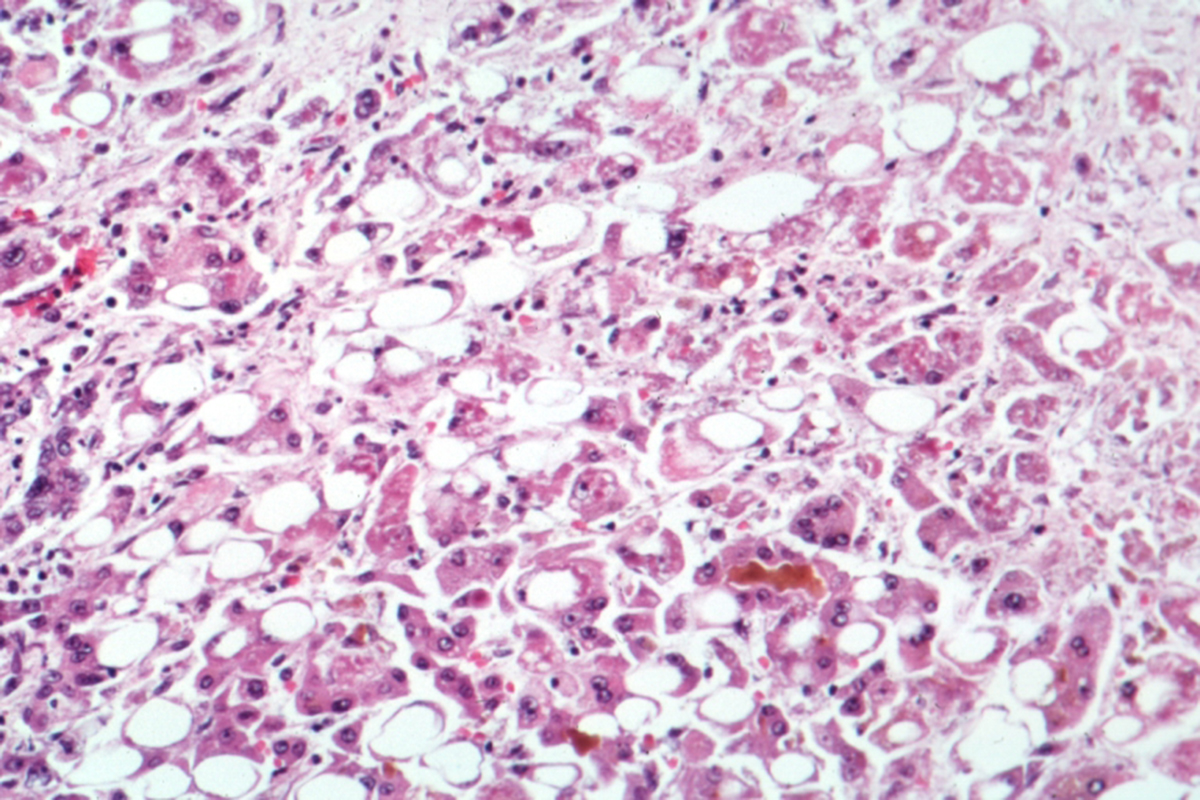
Viral HepatitisViral hepatitis is inflammation of the liver that develops because of viral infection. Number of viruses, for example cytomegalovirus, Eppstein-Barr virus and virus of mononucleosis, can lead to liver inflammation. Inflammation of the liver can also be the result of number of conditions such as autoimmune disease, drugs and alcohol.
There are number of hepatotropic viruses: Hepatitis A, Hepatitis B, Hepatitis C, Hepatitis D, Hepatitis E, Hepatitis F (hypothetical virus), and Hepatitis G. Hepatitis viruses of type A, B and C are the most common.
The LiverThe liver is an organ positioned in the upper right part of abdomen. It is the largest glandular organ and has several functions in the body:The liver clears the blood of harmful substances by shifting them into harmless substances. Such harmful substances can come from drugs, alcohol, ammonia or bilirubin. After neutralizing the toxins, the liver eliminates them.The liver creates enzymes and proteins which are responsible for chemical reactions in the body.The liver stores vitamins and chemicals.The liver manufactures cholesterol and hormones.The liver breaks down food and turns it into energy.The liver fights against infections.Impaired liver cannot perform these functions properly.
Hepatitis A
Hepatitis A is an acute liver disease caused by hepatitis A virus (HAV). In the US, around 150,000 people get infected with hepatitis A every year. Hepatitis A can be transmitted from one person to another primarily by fecal-oral route. Characteristically, this viral hepatitis is spread among household members, through personal contact (kissing) and by contaminated food and water intake. Approximately, 10-12 day after infection, the virus can be detected in blood. People suffering from hepatitis A are advised to rest, stay hydrated and avoid alcohol.
Hepatitis A VaccineHepatitis A vaccine can be given to children aged over two years in order to prevent the infection. This vaccine is usually recommended to people who are:Traveling into countries with high risk of hepatitis A. Working in day care institutions.Working with animals.Working in laboratory.IV drug addictive.Living in communities with high incidence of hepatitis A.This vaccine is given by intramuscular route into the upper arm. Two doses are needed. The second dose is given 6-12 months after the first one.
Common side effects of hepatitis A vaccine include burning, redness and pain at the injection site. Less common side effects are fatigue, nausea, appetite loss, headache, weakness and fever. If you experience high body temperature, difficult breathing, rash, dizziness and muscle or joint pain you must inform your physician.This vaccine shouldn’t be given to pregnant women.

















Your thoughts on this
Loading...